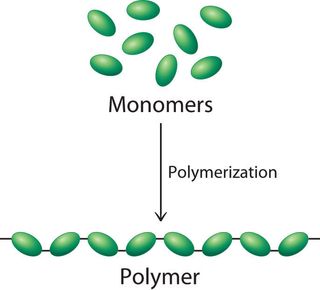Personalized Polymers: Customized Solutions for One-of-a-kind Applications
Personalized Polymers: Customized Solutions for One-of-a-kind Applications
Blog Article
Checking Out the Varied Applications and Advantages of Polymers in Different Industries
Polymers, with their diverse variety of homes and capabilities, have actually come to be essential in different markets, each gaining unique benefits from their application. From improving safety and performance in the automobile field to reinventing medical gadgets in the healthcare sector, polymers play a pivotal role.
Automotive Market Applications
Polymers play a crucial duty in enhancing the performance and durability of different parts within the automotive sector. These versatile products are extensively used in the manufacturing of various parts, ranging from indoor parts to under-the-hood applications. One popular use of polymers in the automotive sector remains in the manufacturing of light-weight parts. By replacing conventional steel parts with polymer-based alternatives, automobiles can accomplish enhanced gas performance without endangering on strength or safety and security.

Medical Care Industry Benefits
In numerous health care applications, the advantages of making use of polymers are extensively identified for their varied series of useful properties. Polymers play a vital function in the healthcare market as a result of their flexibility, biocompatibility, and cost-effectiveness. Among the main advantages of polymers in health care is their ability to be customized to specific requirements, such as adaptability, toughness, and biodegradability, making them optimal for a vast array of clinical applications.
Polymer-based products are extensively made use of in medical devices, such as catheters, implants, prosthetics, and medicine delivery systems, as a result of their biocompatibility and ability to mimic all-natural tissues. These materials can minimize the threat of sensitive reactions or beings rejected, improving individual safety and end results. In addition, polymers are lightweight, making them suitable for wearable medical devices and ensuring patient comfort.
Additionally, polymers allow the growth of innovative treatment techniques, such as hydrogels for cells engineering and nanocomposites for targeted medication distribution. Their simplicity of processing and sanitation makes them necessary for preserving high criteria of health in healthcare setups. Overall, the diverse benefits of polymers contribute considerably to innovations in medical modern technology and person treatment.
Ecological Benefits of Polymers

Additionally, polymers can add to energy savings due to their lightweight nature. In markets such as transport, lightweight polymer materials can assist lower gas intake and greenhouse gas exhausts. In addition, polymers can enable the advancement of energy-efficient items such as insulation materials that enhance energy preservation in structures.
Furthermore, polymers play an essential function in reducing water air pollution. For instance, the use of polymer-based filtration systems can efficiently eliminate toxins and contaminants from wastewater, securing water sources and environments. Generally, the ecological benefits of polymers make them useful possessions in promoting sustainability and green methods across different sectors.
Polymers in Electronics and Modern Technology
Thinking about the boosting need for cutting-edge and sustainable solutions in modern-day markets, the assimilation of sophisticated polymer technologies in the world of electronic devices and innovation has actually become a critical technique for driving efficiency and performance. Polymers have actually changed the electronics industry by making it possible for the manufacturing of lighter, extra flexible, and long lasting digital tools. From mobile phones to clinical tools, polymers play an important duty in boosting product layout and performance.
One substantial benefit of polymers in electronic devices is their shielding buildings, which help shield fragile electronic components from environmental variables and electric disturbance. In addition, polymers are necessary in the development of adaptable display screens, wearable technology, and published electronics, providing unlimited opportunities for creating clever and interconnected gadgets.
Additionally, the usage of polymers in digital packaging has brought about improvements in miniaturization and thermal monitoring, improving the total performance and reliability of digital systems. As modern technology remains to develop, the flexibility and flexibility of polymers will certainly drive better development in the electronics industry, shaping the future of innovation.
Role of Polymers in Building And Construction and Facilities
Polymers use many benefits in the building and construction market due to their flexibility, longevity, and cost-effectiveness. One vital role of polymers in building and construction is their usage in coatings and sealers, offering protection versus ecological aspects such as dampness, UV radiation, and rust.
Additionally, polymers play a crucial function in lasting building and find here construction practices by making it possible for the development of energy-efficient frameworks. Protecting products made from polymers help manage interior temperature levels, reducing the need for heating and cooling down systems and ultimately decreasing power consumption. Furthermore, making use of polymer-based compounds in facilities jobs such as bridges and roads enhances their longevity and minimizes maintenance expenses. On the whole, the incorporation of polymers in building and construction and infrastructure displays their substantial effect on modern-day engineering practices.
Conclusion
In final thought, polymers play an important role redirected here in numerous industries such as automotive, medical care, ecological, electronic devices, and building. Their functional homes make them useful in producing ingenious options and products. From boosting gas performance in lorries to improving clinical tools, polymers provide countless benefits. Furthermore, their impact on lowering waste and promoting sustainability highlights their value in contemporary applications. The prevalent use of polymers shows their considerable payment to progressing technology and boosting lifestyle.
Report this page